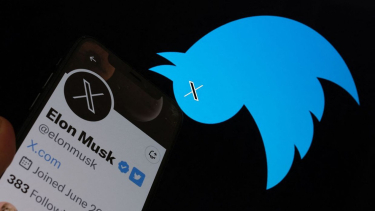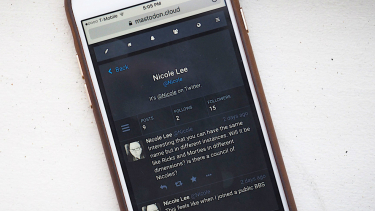Mastodon vs Twitter: Which One Better?
- TechCrunch
Jakarta – Twitter or now known as X and Mastodon, while both serving as social media platforms, different significantly in their underlying principles and user experiences.
X stands as a centralized juggernaut, controlled by one company, with a vast global user base. Meanwhile, Mastodon adheres to a decentralized model, featuring numerous independently operated instances, each with its unique rules and governance.
At this point, you know there are problems with X. Even if you haven’t been paying attention to the latest news on a day-to-day basis, you know that there have been serious issues over at the iconic bird-themed site for a while now.
Since Elon Musk officially became owner and CEO of Twitter, Inc. on October 27th, 2022, these problems have only become more apparent.
Naturally, many have sought an alternative site to get away from Twitter before the ship completely sinks. Rival site Mastodon is one of the most popular alternatives, but how do Mastodon vs Twitter actually compare? as reported from Welivesecurity site.
Logo X Twitter.
- AFP
1. Centralized vs decentralized
X is owned and operated by Twitter, Inc., a single company that defines the social network’s policy, moderation rules, and general organization. Just like Meta owns and operates Facebook or Instagram, for example.
On the other hand, Mastodon is fully decentralized. Mastodon gGmbH is a nonprofit responsible for developing open-source software, in this case Mastodon.
But, unlike Twitter, this means that anyone, whether an individual or an entity, can take advantage of the code to create their own ‘mini social networks’, all of them being interconnected and able to communicate with each other and together making up the Mastodon universe known as the fediverse.
That is to say, each Mastodon server is a completely independent entity, able to interoperate with others to form one global social network.
In practice, each of these servers (also known as instances) is created to gather users based on common interests, such as music, hobbies, or professions; a common identity like nationality, religion, or sexual and gender identity; or a cause, such as climate action.
Moreover, because Mastodon gGmbH is a nonprofit, its funds are based on sponsorship or support on Patreon, while individual servers may follow the same model or even be free for members and financially sustained by its admins.
Importantly, Mastodon does not sell data or run ads, nor does it have an algorithmically curated timeline.
Instead, it features a “home” timeline with the people you follow, a “local” timeline with posts from users on the same instance and, finally, a “federated” timeline that shows all posts from all users.
Mastodon
- Mastodon
2. Content moderation
In Mastodon, each instance (or community) governs its own rules, including content moderation. Thus, different communities may have different policies concerning the type of content that is acceptable and considered safe according to what members are comfortable reading or sharing with others.
While you can choose to share posts only within a community, they can also be public, and all members of all Mastodon instances can communicate with each other.
This means that what is considered acceptable on one instance may be considered sensitive on another. In that case, the people responsible for an instance might block other instances to avoid its members seeing unwanted content.
X’s approach to content moderation is different and indeed, more conventional: The rules are established by a legal team and apply to everyone on the platform.
While this might seem like an easier and mostly straightforward process, it might also be one of the reasons many users have started considering using Mastodon.
Despite the rules being publicly available and clearly stating the prohibition of engaging in harassment, or inciting others to create or promote hateful content, policy makers and regulators have openly alerted the platform to review its moderation practices amid recent changes and layoffs.
3. Data protection
Platform Mastodon
- www.engadget.com
In the first days of January of this year, over 200 million usernames, email addresses and other data belonging to Twitter users were posted on underground forums by hackers, who had compiled the data from a number of breaches not involving Twitter itself in 2021.
While this database does not include users’ passwords, it can lead to more targeted phishing and doxing.
As such, this kind of leak reminds us of the amount of data including direct messages that Twitter, Inc. servers hold on the network’s 450 million users.
And for those who pay for X subscriptions, there’s the added risk of a data breach that exposes a range of their personal and financial information.
Meanwhile, it is up to the person or organization behind each Mastodon instance to run their own server that can be hosted on a local hard drive or with a cloud storage service such as Amazon S3 or Google Cloud.
This means that despite having 2.5 million users overall, Mastodon’s data is stored across thousands of different servers belonging to any given Mastodon instance.
But this doesn’t mean that Mastodon isn’t prone to security issues, of course. Indeed, the platform has been found to contain several security vulnerabilities in recent months; in another “security scare”, somebody scraped the posts and public account information of more than 150,000 Mastodon users.
"When compared to other social media platforms such as X (Twitter) or Instagram Threads, it is clear that Mastodon does not have as much legal foundation as the others. However, there are rules that all participants of the platform must abide by," said Anna Larkina, Web Content Analyst at Kaspersky.
"As with any online publication, users should always follow the 'think before you post' rule when publishing information on Mastodon,"































